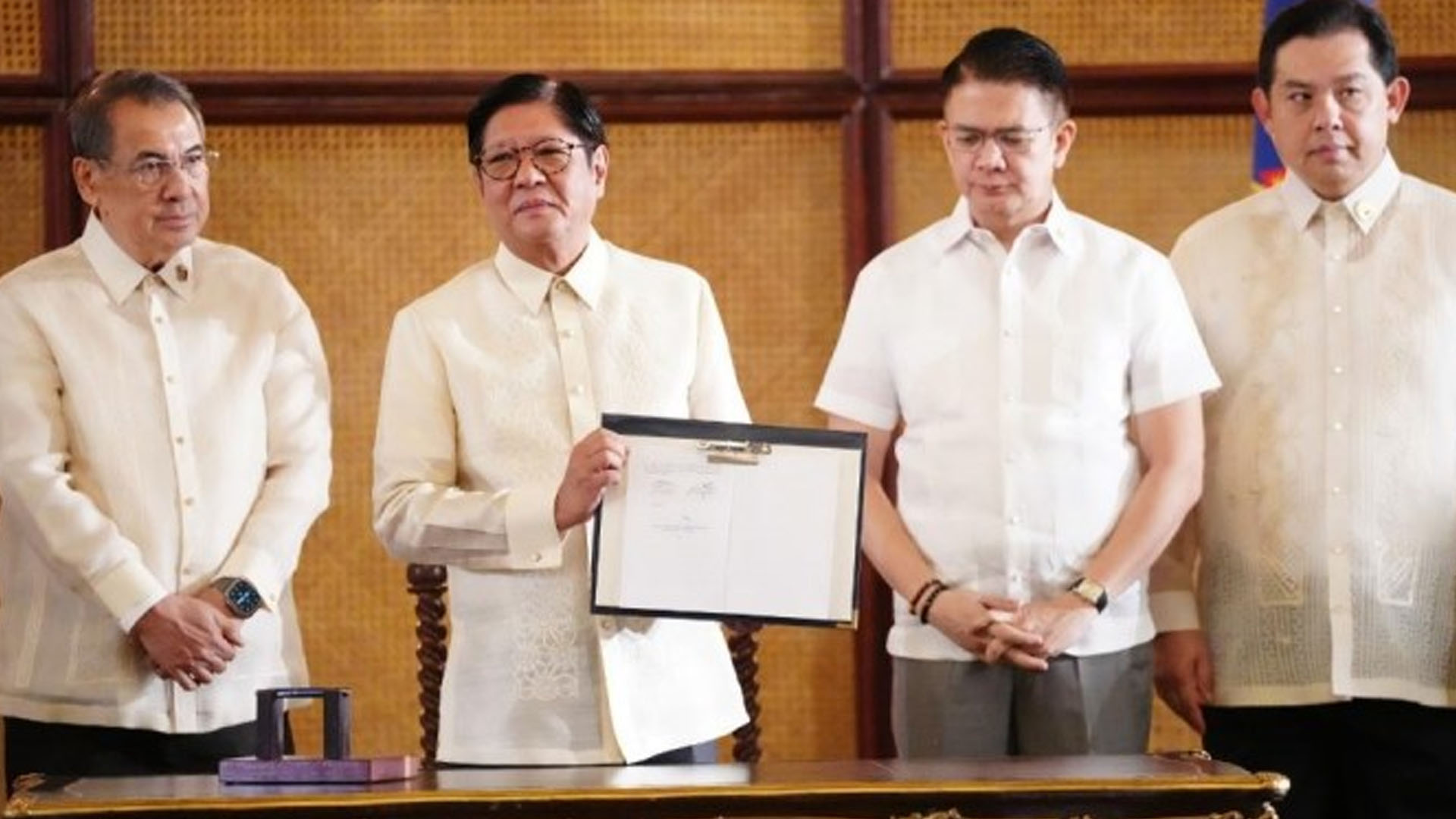Speaker Ferdinand Martin Romualdez has said the enactment of the Judiciary Fiscal Autonomy law not only strengthens judicial independence but will improve the delivery of justice across the nation.
Approved by both the House of Representatives and the Senate in June before the adjournment of the 19th Congress, the Judiciary Fiscal Autonomy Act was signed into law by President Ferdinand R. Marcos Jr. in Malacañang on Thursday morning.
“This is a proud day for our justice system. Sa pagbibigay ng tunay na fiscal autonomy sa ating judiciary, mas pinalalakas natin ang kanilang mandato sa ilalim ng Konstitusyon nang may sapat na resources para makapagsilbi nang maayos sa ating mga kababayan (In giving true fiscal autonomy to the judiciary, we further strengthened their mandate under the Constitution with ample resources to properly serve our countrymen),” Romualdez said in a statement.
“It is a vital step to ensure that our courts are equipped, empowered, and shielded from undue influence, in full service of the rule of law,” he added.
The new law clearly defines the scope and extent of the judiciary’s fiscal independence, guaranteeing that its appropriations will not be reduced below the previous year’s level and that funds will be automatically and regularly released after congressional approval.
The Speaker said President Marcos’ signing of the measure reflects the administration’s commitment to a stronger and more independent judiciary.
“Nagpapasalamat tayo kay Pangulong Marcos sa kanyang suporta at sa pagkilala sa kahalagahan ng judiciary sa pagpapanatili ng rule of law (We thank President Marcos for his support, and his recognition of the importance of the judiciary in preserving the rule of law),” Romualdez said.
“Malaking hakbang ito para sa demokrasya. Kapag matatag ang judiciary, mas mabilis at mas patas ang paghatid ng hustisya sa bawat Pilipino (This is a big step for democracy. A strong judiciary means faster and fair delivery of justice for every Filipino),” he said.
Under the law, the Supreme Court will submit its annual budget proposal directly to the Department of Budget and Management (DBM), with the original proposal attached to the National Expenditure Program.
The DBM may issue comments and recommendations, but approved appropriations must be released automatically without the need for additional requests or conditions.
The measure grants the Chief Justice the authority to augment budget items from savings, reallocate allotments within projects, and modify fund distribution between operating units — powers that Speaker Romualdez said will enable the judiciary to respond swiftly to operational needs and improve efficiency in court services.
Another key feature is the creation of the Judiciary Trust Fund, replacing the Judiciary Development Fund.
This new trust fund will pool all legal fees, existing funds, and interest income for the judiciary’s exclusive use, giving it greater capacity to finance operations and improvements without relying solely on annual appropriations.
The Supreme Court is likewise authorized to reorganize its administrative structure, create new offices, and decentralize operations to bring court management closer to litigants. It may also determine the number and positions of court personnel, set compensation levels within budget limits, and ensure competitive pay to attract and retain qualified staff.
To support these reforms, all judiciary-related real and personal properties will be transferred to the Supreme Court within six months from the law’s effectivity, giving it direct control over assets essential to its functions.
All expenditures and revenues of the judiciary and the Judiciary Trust Fund will remain subject to post-audit by the Commission on Audit, in line with transparency and accountability standards. (PNA)


